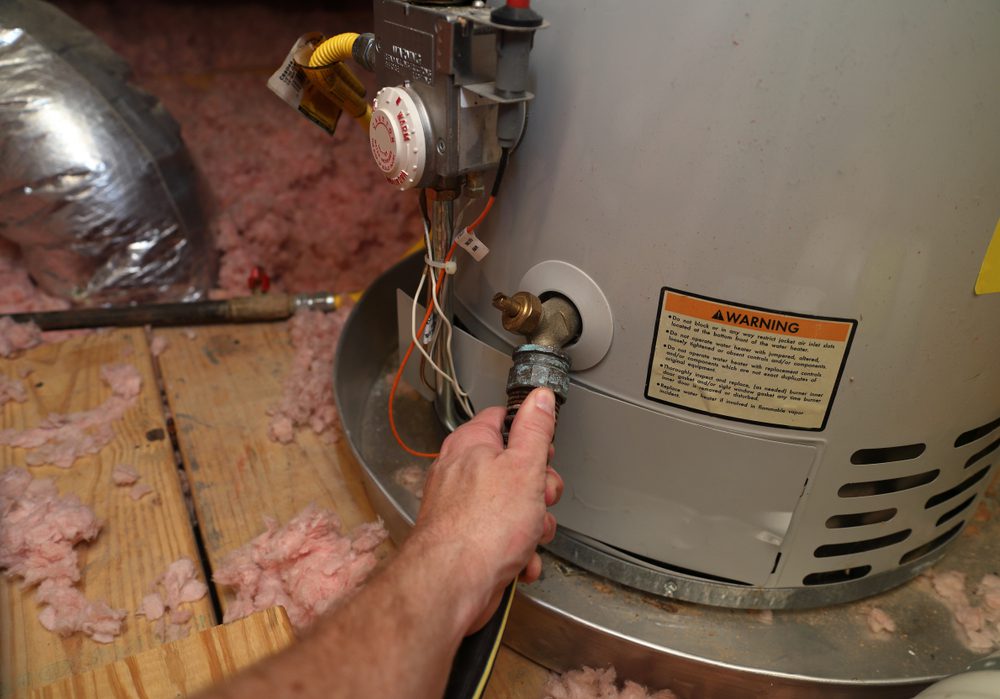Ways to Cope with the Major Hot Water Heater Urgencies
Ways to Cope with the Major Hot Water Heater Urgencies
Blog Article
Are you currently searching for guidance about Common Hot Water Heater Problems?
A water heater is among the most important standard devices that can be located in a home. With water heaters, you don't require to undergo the stress of heating water by hand each time there is a demand to take a bath, wash, or the dishes. Nevertheless, there is always a possibility that your water heater would certainly act up similar to many mechanical devices.
It is important to note any type of little malfunction and tackle it rapidly before points get out of hand. Many times, your water heater starts to malfunction when there is a build-up of sediments as a result of constant use. As a preventative measure, regular flushing of your hot water heater is suggested to stop sediment buildup and prevent functional failure.
Typical hot water heater emergencies and how to handle them
Inadequate hot water
It may be that the water heating system can't support the hot water demand for your apartment or condo. You might upgrade your water heater to one with a bigger capability.
Rising and fall water temperature.
Your hot water heater could begin producing water of different temperature levels normally ice chilly or hot hot. In this scenario, the first thing you do is to make certain that the temperature level is readied to the wanted degree. If after doing this, the water temperature maintains altering throughout showers or various other activities, you might have a faulty thermostat. There may be a demand to replace either the heating or the thermostat system of your hot water heater.
Dripping water heater tank.
In this scenario, you need to turn off your water heating unit, enable it to cool down, as well as meticulously look for the source of the issue. At times, all you require to do is to tighten a few screws or pipe links in situations of small leakages. If this doesn't work as well as the leakage continues, you could need to use the services of a specialist for a proper replacement.
Tarnished or stinky water
When this takes place, you require to know if the concern is from the water or the container source. If there is no amusing smell when you run cool water, then you are certain that it is your water heating unit that is damaged. The stinky water can be created by rust or the build-up of microorganisms or debris in the water heating system tank.
Final thought
Some home owners disregard little caution and minor faults in their hot water heater system. This just leads to more damages and a possible complete break down of your device. You must take care of your water heater faults as quickly as they come near prevent more expenditures and also unneeded emergency troubles.
With water heaters, you don't require to go with the stress of heating water by hand every time there is a requirement to take a bath, do the laundry, or the recipes. It might be that the water heating system can not sustain the hot water demand for your house. Your water heating system might start creating water of various temperature levels typically ice cold or scalding warm. If there is no amusing odor when you run cold water, then you are certain that it is your water heater that is faulty. The stinky water can be triggered by corrosion or the accumulation of bacteria or debris in the water heating system tank.
Common Water Heater Issues and What You Should Do
What Type of Water Heater Do You Have?
Before we begin it’s first important that you identify the type of water heater you have on your property. There are two main types of water heaters out there: conventional and high efficiency.
Both of these types of products typically use either gas or electricity to heat power. There are also solar water heaters that use a thermal collector on the roof or yard to heat the water.
While these models are not as common, they can cut heating costs in half. In this article, we will focus on conventional and high efficiency.
How Do My Electric and Gas Water Heater Work?
Though they look similar, electric and gas water heaters work very differently. It’s important to know their basic function because often problems can be specific to the heating source.
In the electric model, a thermostat on the side of the machine detects the temperature of the water in the tank. When the temperature needs to rise electricity flows to a heating element suspended in the water.
Gas models also use a thermostat device — typically with a mercury sensor at the tip and an additional sensor called a thermocouple. The thermocouple detects whether the pilot light is on and controls the flow of gas.
When the thermostat drops below the appropriate level gas is released which becomes ignited by the pilot light. The flame heats the bottom of the water tank which causes hot water to rise and cold water to drop.
This natural circulation continues until the water reaches the desired temperature. Then, the thermostat triggers the gas control valve to shut off the flow of gas.
What Are the Most Common Issues and How Do You Fix Them?
https://happyhiller.com/blog/common-water-heater-issues-and-what-you-should-do/

Do you appreciate reading up on Is Your Water Heater Leaking?? Make feedback below. We'd be interested to find out your views about this blog posting. We are looking forward that you visit us again before long. Sharing is caring. Helping people is fun. Many thanks for your time. Kindly pay a visit to our blog back soon.
24/7 service for plumbing emergencies. Report this page